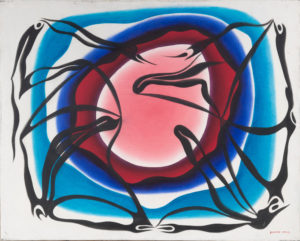Modernity @ Zero Hour:
The Question of the Universal
and the Origins of the Global Order
ACLA Nonsite Seminar
March 20 and 21, 2020
With the cancelation of ACLA 2020, seminar members have agreed to hold a virtual seminar using conferencing software, across two continents and four time zones, consolidated into two sessions. A small number of invitations for non-presenting participants is available; contact organizer at address below.
Modernity @ Zero Hour I
Friday, March 20, 10:30 AM –1:00 PM
Barrett Watten, Wayne State University: “Modernism @ Zero Hour: Anticipatory, Punctual, and Retrospective Universals”
Maggie Rosenau, University of Colorado, Denver: “Objectivity: A Moment of Intersection Between the Avant-Garde, Denazification of the German Language, and Literary Goals after the Zero Hour”
David Kellogg, Coastal Carolina University: “Modernist Non-Events: Trials of Modernism in Malaya and New York”
Herman Rapaport, Wake Forest University: “Dismantling Modernity”
Modernity @ Zero Hour II
Saturday, March 21, 10:30 AM –1:00 PM
Lauri Scheyer, Hunan Normal University (China), “Modernism and Black Nationalist Identity: The Diaspora Before and Since the Zero Hour”
Parvinder Mehta, Wayne State University, “Fractured Feminine Selves and Autospecular Affect: Global Modernism and the Postcolonial Artist as a Woman in Meena Alexander’s Writings”
Zhai Yitian, SUNY Buffalo: “Sexual Difference, YinYang, and the Critique of Universals in Simone de Beauvoir and Luce Irigaray”
Gary Huafan He, Yale University, “Entropy and Utopia @ Zero Hour: Modernity and the Manhattan Project”
Prospectus
This seminar will address the relationship between literary modernism (traditionally seen as having its end date at 1945, but expanded to include work in genres not usually associated with high modernism) with the Zero Hour of the end of World War II (seen as a crisis of modernity that decisively set in place processes of globalization). Seminar participants will read works of modernism, from American, European, and non-Eurocentric sources, that imagine and constitute while they challenge and critique “the universal” as an entailment of modernist forms (which are often seen as characterized by forms of parataxis and the foregrounding of particularity that suspend any notion of the universal). In the process of critiquing modernist particularity, we will also interrogate the vertical, idealist, and even authoritarian aspects of mid-century modernism and their entailments for the post-1945 order. High modernist authors could include Eliot, Woolf, Williams, Pound, Breton, Stein, Beckett, and so on in the Eurocentric tradition, but these figures may be placed next to lesser-known and nonliterary figures, movements, genres, and works. We would then try to connect the aesthetic “universalist” aspect of these authors and works with political claims for universal ethical and aesthetic values, in historical frameworks that range from the Nuremberg Trials, on the one hand, to the rise of abstraction as a universalist aesthetic, on the other. Finally, we will move from the Eurocentric constructions of universals to query their possibility in “alternative modernities,” represented at 1945 by Russia, China, and India as non-Western states and cultures, along with the decolonizing world, as anticipating non-Eurocentric frameworks for the emergent global order that must be taken into account in any notion of the “universal.” The seminar will expand the implications of modernism for global and transnational pedagogy; should interest students of modernist, transnational, and postcolonial literature; and will engage theoretical concerns of Critical Theory and the gendering of modernity whenever possible.
Contact: b.watten@wayne.edu or barrett.watten@gmail.com
Image: Paulina Peavy, Phantasm #55, c. 1980; Andrew Edlin Gallery













